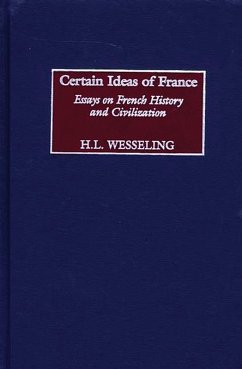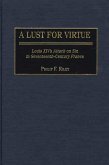The title of this book is, of course, inspired by the famous opening words of General de Gaulle's Memoirs of the Second World War: All my life I have thought of France in a certain way. Wesseling brings together his essays dealing with a great variety of subjects such as culture, society, politics, and diplomacy, with one section devoted entirely to French historians. The first section contains an chapter on the famous painter Ary Scheffer and the France of his time, that is to say the first half of the 19th century. The second chapter continues this theme and deals with Émile Zola and the Paris of the Second Empire. Two other chapters discuss aspects of the Third Republic, sports and students, respectively. The second section is devoted to French intellectuals. It offers the first in-depth analysis of the group of intellectuals that supported Zola and Dreyfus. Chapter six deals with one of the great literary figures of the interwar period-and later a notorious collaborator-Robert Brasillach. Chapter seven contains a vivid sketch of the life and work of the famous French intellectual Raymond Aron. The third section is devoted to politics and diplomacy. French foreign policy is discussed both in its long-term perspective as well as more specifically in the period of Charles de Gaulle. De Gaulle's idea of France is compared with that of an author by whom he was greatly influenced, Charles Péguy. Finally, there is a section on French history writing, including two biographical essays, one about Gabriel Hanotaux, the once famous but now nearly forgotten historian who became Minister of Foreign Affairs, and another on Fernand Braudel, the great contemporary French historian and close friend of Wesseling. Of particular interest to scholars, students, and other researchers involved with French history, the history of ideas, and European historiography.
Bitte wählen Sie Ihr Anliegen aus.
Rechnungen
Retourenschein anfordern
Bestellstatus
Storno









